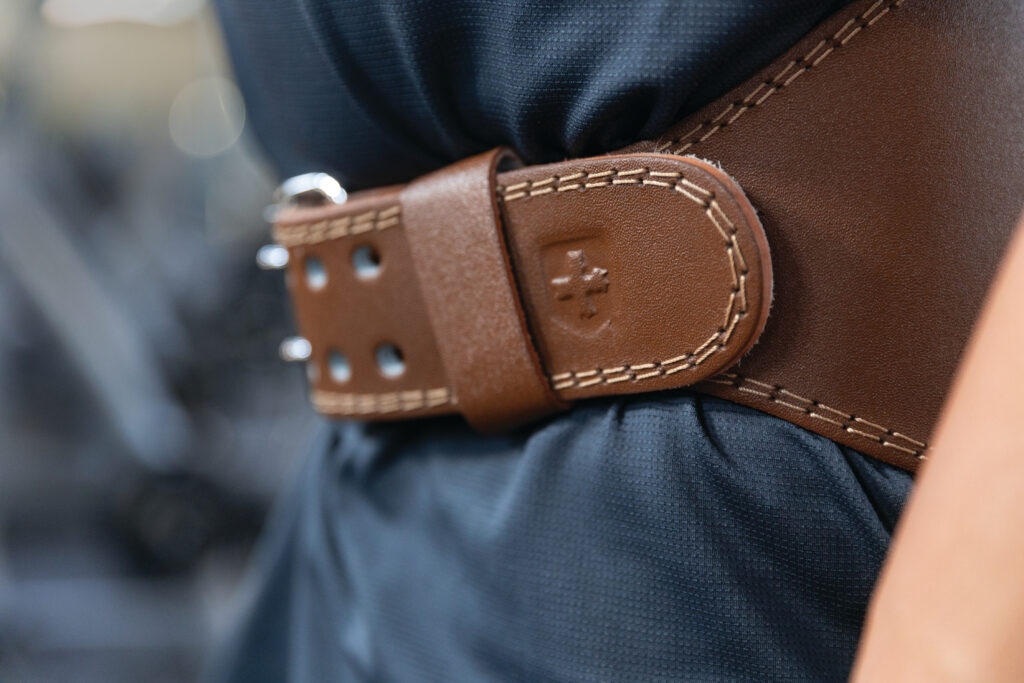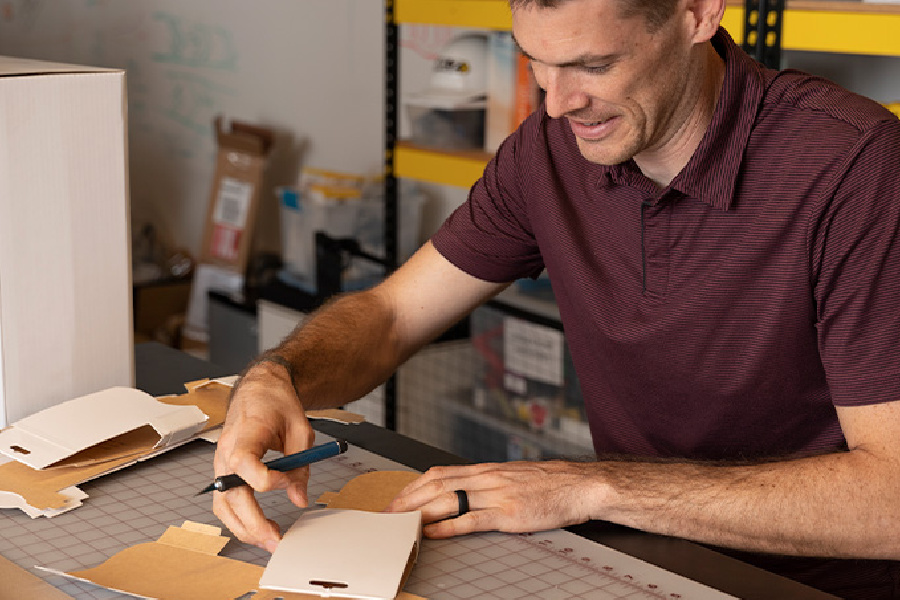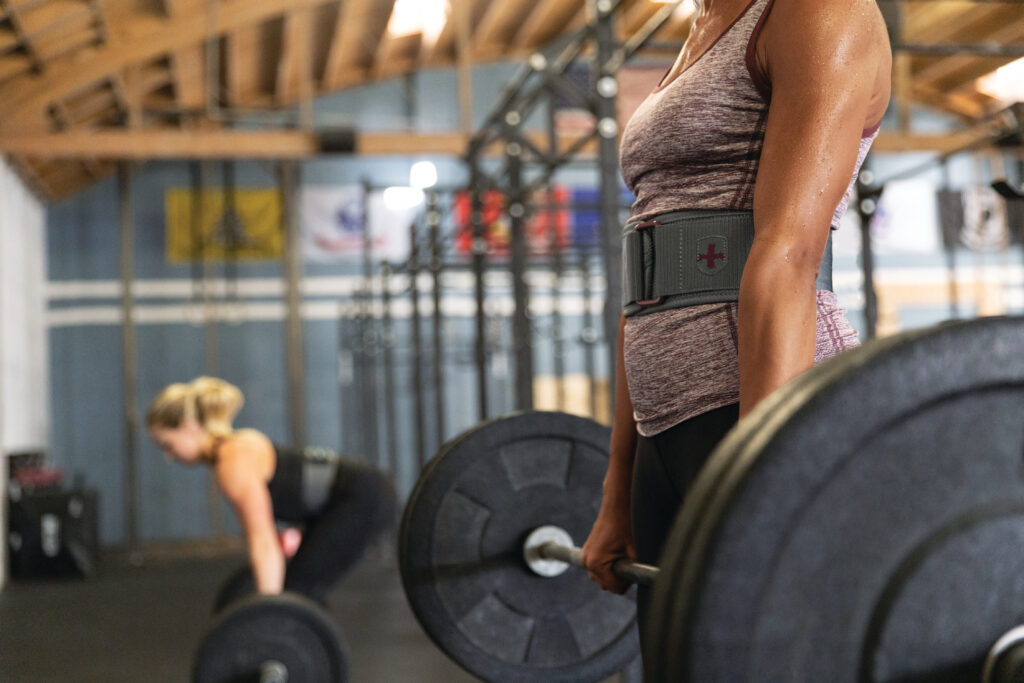
Our Stance
Harbinger believes that building superior products means building ethical and sustainable products. This means getting smarter and more resourceful in how we ideate, design, produce and bring products to our customers. Harbinger and our partner brands have demonstrated that we can design products and packaging that are both Fit for the Planet™ and are inclusive to more people while being commercially advantageous.
We have significantly advanced our climate strategy, materials management, and human rights due diligence through establishing best practices and new processes, hiring and enabling critical team members, and building the institutional muscle to support these programs and goals. For more on these strategies across Harbinger partner brands, please see Implus.com/impact for more information about Implus corporate Climate goals and People engagement (including Diversity, Engagement and Inclusion).

Build Responsible
& Sustainable Products
Harbinger and our partner brands have begun to measure our footprint across all our direct operations and activities as well as conducting deeper investigations on specific brands and products. We are testing alternative approaches that are both cost effective and climate conscious in our material selection, logistics & product shipping, and employee commuting.
Achieve Climate Benefits
& Operational Success
Implus has begun to measure our footprint across all our direct operations and activities as well as specific brands and products. We are testing alternative approaches that are both cost effective and climate conscious in our logistics & product shipping, and employee commuting.


Unlock Growth through
Efficiency & Waste Reduction
As we dedicate time to redesigning our packaging for materials reduction or efficient shipping, the more waste reduction and hard dollar savings we discover. We expect our early activities across will save 360 tons of plastic, paper, and packaging waste reduction in the first 12 months.
Innovating for our Future
Whether designing a new product for the first time to use less material or rethinking an existing product to make it more repairable, our product developers are focused on exceeding consumer expectations and delivering our environmental and social goals.


Build Responsible & Sustainable Products
We made a commitment to measure our brand level carbon footprint and have begun work to reduce our impact by brand and product line. Our primary goal is to directly reduce our emissions by being smart about our packaging material and product design choices, supporting our suppliers to make their manufacturing operations more energy efficient and optimizing the transportation of product from their factories to our distribution centers (and ultimately to our consumers).
Where our improvements in efficiency and sourcing are not enough, we will pursue opportunities to offset the carbon it takes to make and deliver our products and work with our leased locations to support our direct energy needs with renewable energy credits. For more on these strategies across our partner brands, please see Implus.com/impact for more information about our corporate-wide climate goals.

Achieve Climate Benefits & Operational Success
We are looking at sourcing decisions that lead us to materials that are more ethical and socially conscious in both how and where they were produced and how they impact the consumer community. In many cases, this means we are working with specific partners to verify our existing sources are or transition our sourcing to certified raw materials that are responsible and sustainable. And across all products, we are working with our suppliers to identify opportunities to transition our packaging materials to recycled content. In other products, we are looking at how to reduce and eliminate materials of concern. Implus has already worked with our suppliers to reformulate specific products to exclude intentionally added materials of concern as part of advancing a Restricted Substances List to meet not just the legal minimums, but also focuses on overall best practices. These are just the first of many activities we are implementing across our products and brands to provide the quality of products you deserve, made with the care and concern for the planet we share

Unlock Growth Through Efficiency & Waste Reduction
We made a commitment to measure our brand level carbon footprint and have begun work to reduce our impact by brand and product line. Our primary goal is to directly reduce our emissions by being smart about our packaging material and product design choices, supporting our suppliers to make their manufacturing operations more energy efficient and optimizing the transportation of product from their factories to our distribution centers (and ultimately to our consumers).
Where our improvements in efficiency and sourcing are not enough, we will pursue opportunities to offset the carbon it takes to make and deliver our products and work with our leased locations to support our direct energy needs with renewable energy credits. For more on these strategies across our partner brands, please see Implus.com/impact for more information about our corporate-wide climate goals.

Innovating for our Future
Innovation is key to our overall environmental and social commitment. Whether designing a new product for the first time to use less material or rethinking an existing product to make it more repairable, our product developers and sourcing teams are focused on exceeding consumer expectations. Through this collaborative process, we are pushing our own boundaries, building new skills across our teams and supply chain partners, and taking steps each day towards meeting our sustainability goals.
As part of this effort, Harbinger and our partner brands have signed a contract with Terracycle to kick off collection of several product streams in 2024. Terracycle offers collection and recycling services for products that normally are not accepted through local government recycling activities. Through this contract, we are preparing to test options for using the collected materials for useful secondary goods and investigate where we can bring that material back into our branded products to reduce our raw material sources. This is only the beginning, and we will continue to iterate and find that balance between hitting new innovative targets, finding the right price point for our customers, and achieving environmental and social impacts.
